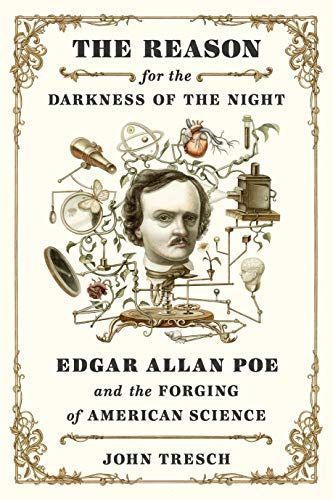
The Reason for the Darkness of the Night Edgar Allan Poe and the Forging of American Science
An innovative biography of Edgar Allan Poe—highlighting his fascination and feuds with science We all think we know Poe—the most popular American writer around the world, dissolute puzzle-maker, pioneer of detective fiction, and author of haunting, atmospheric verse. But what if there was another side to the man who wrote “The Raven” and “The Fall of the House of Usher”? In The Reason for the Darkness of the Night: Edgar Allan Poe and the Forging of American Science, John Tresch offers a bold new life of one of the nineteenth century’s most iconic writers. Shining a spotlight on an era when the lines between speculation, entertainment, and scientific inquiry were blurred, Tresch reveals Poe as much more than a science fiction writer—in fact, he was an avid commentator on scientific and technical developments, publishing and hustling in literary scenes that also hosted lectures and demonstrations by the era’s most prominent scientists, semi-scientists, and pseudo-intellectual rogues. As one newspaper put it, “Mr. Poe is not merely a man of science—not merely a poet—not merely a man of letters. He is all combined; and perhaps he is something more.” Beginning with his training in mathematics and engineering at West Point, and taking us through the tumultuous years that followed, Tresch shows that Poe lived and thought surrounded by science—and that many of his most renowned works can best be understood in its company. He cast doubt on perceived certainties even as he hungered for knowledge, and at the end of his life, he delivered a dazzling lecture on the origins of the universe that would win the admiration of twentieth–century physicists. Throughout, he lived and suffered for his ideas, remaining a figure of brilliant contradiction: he gleefully exposed the hoaxes of the era’s scientific fraudsters even as he perpetrated hoaxes himself. The Reason for the Darkness of the Night is an essential new portrait of a writer whose life is synonymous with mystery, and an entertaining, erudite tour of the world of American science just as it was beginning to come into its own.